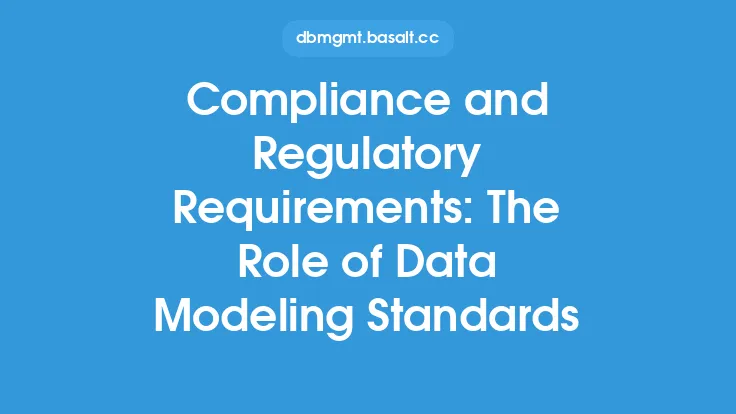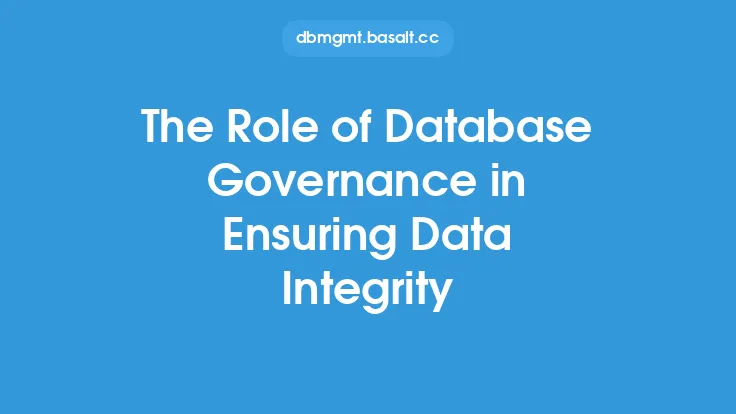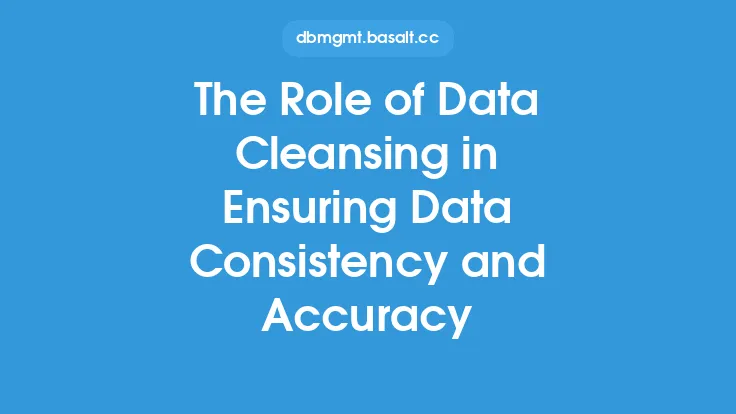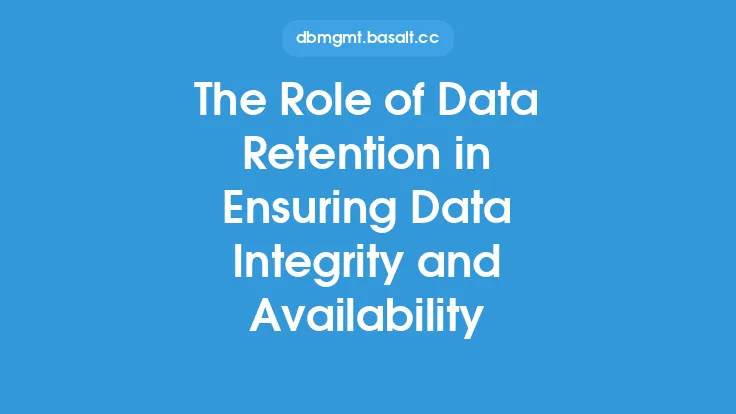Data archiving is a critical component of data governance and compliance, as it enables organizations to manage their data effectively, ensure regulatory adherence, and maintain data integrity. In today's digital age, organizations generate vast amounts of data, which can be both a blessing and a curse. On one hand, data provides valuable insights that can inform business decisions and drive growth. On the other hand, it can be a significant challenge to manage, store, and protect. This is where data archiving comes into play.
Introduction to Data Archiving
Data archiving refers to the process of moving inactive or less frequently accessed data to a separate storage system, where it can be retained for an extended period. This process helps to reduce the amount of data stored in primary databases, improving performance, reducing storage costs, and making it easier to manage and maintain. Data archiving is not the same as data backup, although the two terms are often used interchangeably. While data backup involves creating copies of data to prevent loss in case of a disaster, data archiving involves moving data to a separate storage system for long-term retention.
The Role of Data Archiving in Data Governance
Data governance refers to the set of policies, procedures, and standards that organizations use to manage their data. It encompasses data quality, data security, data compliance, and data availability. Data archiving plays a crucial role in data governance, as it helps organizations to manage their data effectively, ensure data quality, and maintain data integrity. By archiving data, organizations can reduce the risk of data corruption, improve data retrieval, and ensure that data is stored in a secure and compliant manner. Data archiving also helps organizations to enforce data retention policies, ensuring that data is retained for the required period and then disposed of in a secure and compliant manner.
Data Archiving and Compliance
Compliance is a critical aspect of data governance, as organizations must adhere to various regulations and standards that govern data management. Data archiving plays a vital role in ensuring compliance, as it helps organizations to retain data for the required period, protect sensitive data, and ensure that data is stored in a secure and compliant manner. For example, organizations in the financial sector must comply with regulations such as the Sarbanes-Oxley Act, which requires them to retain financial data for a minimum of seven years. Data archiving helps organizations to meet these requirements, ensuring that data is retained for the required period and then disposed of in a secure and compliant manner.
Benefits of Data Archiving
Data archiving offers several benefits, including improved data management, reduced storage costs, and enhanced data security. By archiving data, organizations can reduce the amount of data stored in primary databases, improving performance and reducing storage costs. Data archiving also helps organizations to enforce data retention policies, ensuring that data is retained for the required period and then disposed of in a secure and compliant manner. Additionally, data archiving helps organizations to protect sensitive data, reducing the risk of data breaches and cyber-attacks.
Best Practices for Data Archiving
To get the most out of data archiving, organizations should follow best practices, including developing a data archiving strategy, selecting the right archiving solution, and ensuring that data is stored in a secure and compliant manner. Organizations should also ensure that data is properly indexed and cataloged, making it easy to retrieve and access. Additionally, organizations should establish clear data retention policies, ensuring that data is retained for the required period and then disposed of in a secure and compliant manner.
Data Archiving Solutions
There are various data archiving solutions available, including on-premise, cloud-based, and hybrid solutions. On-premise solutions involve storing archived data on-site, while cloud-based solutions involve storing archived data in the cloud. Hybrid solutions involve storing archived data both on-site and in the cloud. The choice of solution depends on the organization's specific needs and requirements, including data volume, data type, and compliance requirements. Organizations should select a solution that is scalable, secure, and compliant, ensuring that data is stored in a secure and compliant manner.
Conclusion
In conclusion, data archiving is a critical component of data governance and compliance, enabling organizations to manage their data effectively, ensure regulatory adherence, and maintain data integrity. By archiving data, organizations can reduce the risk of data corruption, improve data retrieval, and ensure that data is stored in a secure and compliant manner. As data volumes continue to grow, data archiving will become increasingly important, helping organizations to manage their data effectively and ensure compliance with regulatory requirements. By following best practices and selecting the right archiving solution, organizations can ensure that their data is stored in a secure and compliant manner, reducing the risk of data breaches and cyber-attacks.





